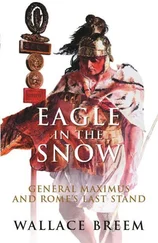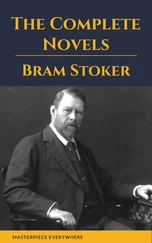Before he moved downstream I said, “I shall hold you responsible for sinking any boat that tries to cross from the east bank.”
“Don’t worry, sir,” he said cheerfully.
“It is you who will do the worrying,” I said shortly.
They were famous night fighters and they came with blackened faces and arms on a night when there was no moon because of the heavy skies. Exactly how many there were, I do not know, but I judged a thousand when all the evidence had been collected afterwards. They came in two groups from up river, one trying to land a little above Moguntiacum, the other a little below it, and there were twenty men to each boat. Fortunately for us they were seen by the night patrols I had left on the islands and by a boat of my own that was moored in a concealed position high up the river. This boat let them pass and then followed them down.
Fired on from the warship, fired on from the island and fired on from the camp they suffered terribly. Many had never met liquid fire before—the fire that cannot be put out—and their screams tortured the sky. Those who tried to land were killed in the shallows, cut down while still wet by Quintus’ cavalry. Afterwards, the troops on the islands reported that only six boats of wounded and dying men made the journey back to the east shore. The bodies were still floating past Confluentes ten days later.
Just after dawn, while the troops from the camp were clearing up, pushing the dead back into the water, finishing off the wounded with a clean stroke and piling up the weapons for my inspection, I crossed to the east bank with half a cohort. The abandoned bridge-head camp was in a better state than I had imagined. True, the huts had been pulled down and the arched gate had no doors; the wells were choked with rubbish and the roofing had come off the corner towers. But the walls still stood intact and, with a little effort, the place could be made inhabitable again. Beyond it were the remains of the old villas, their walls crumbling gently in the autumn sunlight. Nothing stirred on the plain except the long grass, rustling in the wind. The countryside was deserted and though we pushed inland for four miles we saw no-one and were not attacked. Before we turned back I rode north to the hills where Marcomir held watch for me. He was absent when I reached his stockade and an apologetic chief explained that he had gone on a visit to Guntiarus, king of the Burgundians, and was not expected to return before the next moon. I wondered if the absence was a diplomatic one, but there was little point in pursuing the matter at that moment.
On my return the duty centurion came up, a bundle of swords and spears in his arms.
“Would you look at these, sir,” he said.
“What is it?” I asked.
“We picked these up on the bank. I thought that you should see them.”
The swords were long and with hilts similar to those issued to our cavalry. I took one up, held it and then swung it once or twice. I rubbed the muddy blade and the steel shone like silver beneath. I felt the edge and then looked at it carefully. It was ice sharp and smooth as a new blade that has never been used. I swung it again while the centurion watched me intently.
“Yes,” I said. “I see what you mean.”
“They might have been captured in a scrimmage,” he said in a flat voice.
“Yes, that is true. Are they all like this?”
He nodded.
I held the sword up by the hilt and looked at the marks on the blade. The word Remi was stamped on it quite clearly.
“A Roman sword, and a new one at that. Spears too?”
The centurion said quickly, “I have told no-one except yourself, sir.”
“Why not?”
“I did not think that you would want me to.”
“Quite right. Give them to Marcus Severus and tell him to speak to me about them.”
“How did they get them, sir? I don’t understand.”
“I do,” I said. “No wonder the Alemanni opened up the old silver mine at Aquae Mattiacae.” I walked on up to my quarters and there found Quintus and Aquila awaiting me. “It was a try,” I said. “They raided us to test our words and see how strong we were. But it was a raid in strength also, in case we proved weak and they were successful enough to establish a bridge-head. There were signs,” I added grimly, “that ten thousand men at least, I should say, must have been waiting there on the other side in the dark. Bushes were broken, undergrowth trampled down and footprints by the score; all covering an area the size of a double camp.”
Aquila said doubtfully, “Yet we never heard them, sir.”
“Then they must move like cats,” said Quintus sharply. He was shaken by my news and looked it.
“Never mind,” I said. “Who were the dead?”
“Mainly Alemanni and Vandals,” said Aquila.
“Who else?”
“A few Marcomanni and some Alans.”
“Are you certain?”
“A Frank who knows these people was positive.”
I nodded. “Well, it was good practice for our men. But next time it may not be so easy. I expect the Aleman king is now busy killing all his spies. He may believe me now. We shall not be troubled again before the spring.”
Nor were we. It was a warm autumn and when the leaves fell my men began to fish the river again and no one watched them from the other bank. In November it rained a great deal and it became very cold, though the only ice that we saw were small floes that had come down from the Upper Rhenus, high above Borbetomagus, and even these were breaking up as they passed us by. In December the christians began to look forward to their great festival and much time was spent in making preparations for it. They were much cheered to learn—those in the camp garrison who did not know—that it was here at Moguntiacum that the emperor Constantine, on his way to destroy Maxentius at the Milvian bridge, had the famous vision that converted him to their faith. They laughed a lot and there was considerable drunkenness and the cohort commanders had a busy time soothing the feelings of outraged fathers of young women, while the charge sheets were full with details of men who had overstayed their leave.
One morning a legionary who had stayed out all night staggered into the camp with a knife wound in his chest. At the subsequent enquiry I learned that he had gone to one of the villages—he was drunk at the time—in search of a woman and had been attacked by a night watchman, who caught him climbing the palisade. I punished him with stoppages of pay and put him on fatigue duties for three months. Then I rode out to the village concerned. They were collecting brushwood in a clearing when I arrived, while further down the hill a handful of boys and old men were doing the winter sowing. A hunting party had just returned, singing and laughing, a freshly killed buck swaying from a pole. While I watched, they quartered the animal, cutting the meat into strips which would then be smoked over the hut fires, so many strips per man as the chief directed. On one side of the clearing was a huge mound covered with damp leaves, from under which smoke billowed fretfully.
Their chief wiped the sweat from his face and smiled broadly. “Charcoal,” he said, speaking in camp Latin. “We sell it to your soldiers. You have brought us much trade. That is good.”
“And trouble,” I said.
“Oh, that. He was drunk. Is the man dead?” For the first time he looked at me with an expression of alarm.
“No, a pity he isn’t. It would have been a good example to the rest.” I leaned forward over my horse’s neck. “I am sorry. I do not like my men to molest your women. He is well punished. It will not happen again, I promise you.”
He grinned and stroked his beard. “You cannot stop them trying; but I can stop them succeeding. Will you come to my hut and drink?”
Читать дальше












